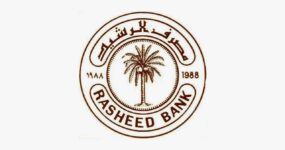The Ministry of Finance revealed on Tuesday that the volume of Iraqi revenues in the federal budget during 7 months exceeded 77 trillion dinars, stressing that the contribution of oil to the budget remains about 89%.
Shafaq News Agency followed the data and tables issued by the Ministry of Finance last August for the accounts of January, February, March, April, June and July for the current fiscal year, which showed that oil is still the main resource for Iraq’s general budget, reaching 89%, indicating that the rentier economy is the basis of the country’s general budget.
Finance tables indicated that the total revenues for seven months of the current year amounted to 77 trillion, 475 billion, 502 million and 239 thousand and 546 dinars, indicating that the total advances amounted to 15 trillion, 664 billion, 477 million, 820 thousand and 559 dinars.
According to the financial tables, oil revenues amounted to 69 trillion and 55 billion, 827 million and 984 thousand dinars, which constitute 89% of the general budget, while non-oil revenues amounted to 8 trillion and 317 billion and 883 million and 512 thousand dinars.
For his part, the economic expert Mohammed Al-Hassani said in an interview with Shafaq News Agency; “The economic problem in Iraq is due to the failure of the regimes that ruled Iraq to achieve the task of moving towards the development economy by investing oil wealth in diversifying the economy, creating productive employment opportunities and raising the level of human development and ridding it of rents.”
Al-Hassani stressed the need to “activate a set of laws that encourage the local and foreign private sector to enter the Iraqi market, including customs tariff laws, consumer protection, monopoly prevention and others.”
The Prime Minister’s Advisor for Financial Affairs, Mazhar Mohammed Saleh, confirmed in March 2021, in an interview with Shafaq News Agency, that the reasons for the economy remaining alerter are due to wars and the imposition of an economic blockade on Iraq during the past era and what we are witnessing today, led to the dispersion of economic resources.
The Iraqi state’s continued dependence on oil as the sole source of the general budget, puts Iraq at risk from the global crises that occur from time to time because oil is affected by it, which makes the country tends every time to cover the deficit through leveraging from abroad or inside, thus indicating the inability to manage state funds effectively, and the inability to find alternative financing solutions.


